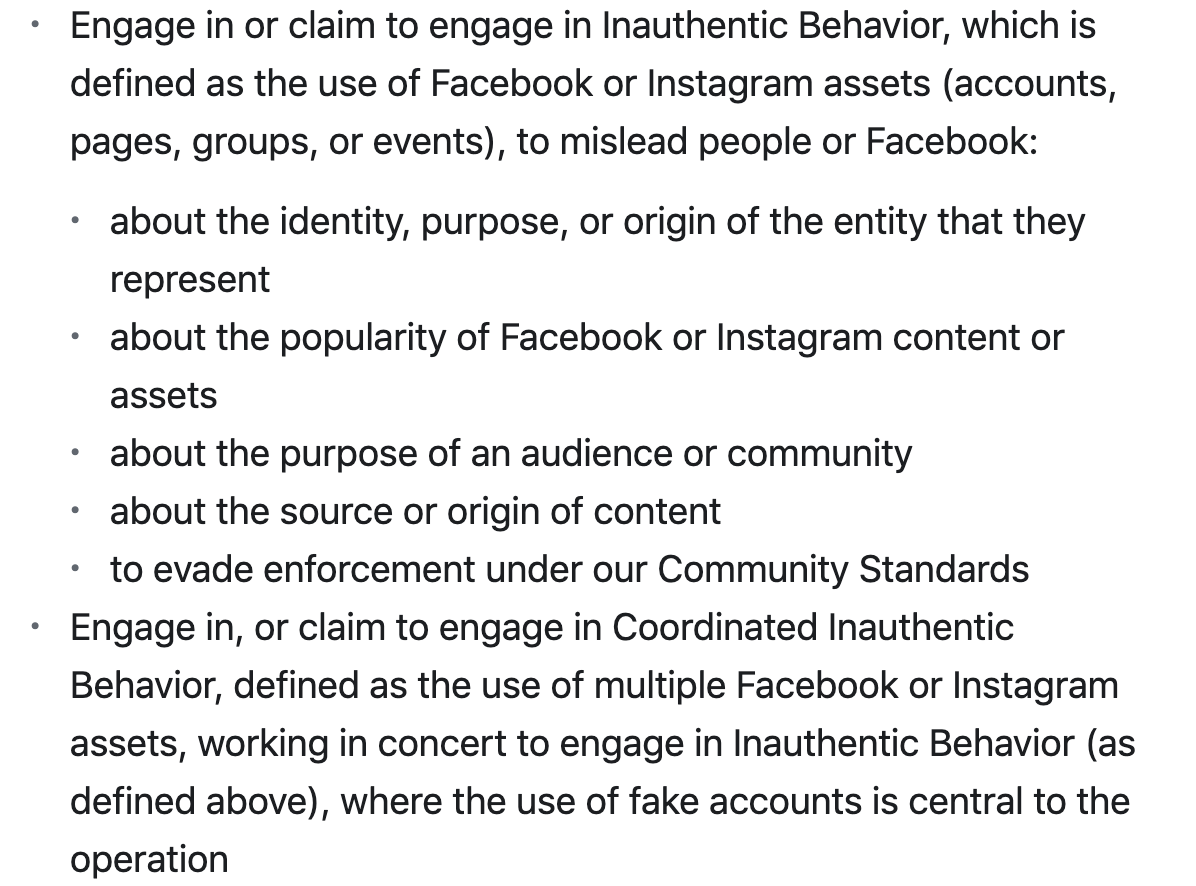1/ There’s been an important debate today about an online campaign to inflate ticket sales at the Tulsa rally, and whether this constitutes deceptive behavior (cc @persily @evelyndouek). Based on public reporting, this isn’t CIB as we define it. #thread https://www.nytimes.com/2020/06/21/style/tiktok-trump-rally-tulsa.html">https://www.nytimes.com/2020/06/2...
2/ First off, it’s critical to analyze this based on the behavior, not the content. However one might feel about the intent here, what was the behavior this campaign engaged in, and is that harmfully deceptive or simply coordinated?
3/ Second, I’m going to address this from a platform perspective. For FB, the key question would be: did the people behind it engage in on-platform behavior that systemically deceived users?
4/ Separating content from behavior, and being precise about what constitutes problematic behavior, is critical. Coordinated protests are an important part of politics, and we should expect these to migrate online, which means we’ll keep having to analyze these efforts.
5/ One good Q to ask when looking for deception: Are there real people behind these accounts? Are they open about who they are? Are they working to conceal their identity or their coordination? It doesn’t seem like that was the case here: https://twitter.com/ohheyjenna/status/1274558069876367361?s=20">https://twitter.com/ohheyjenn...
6/ But to be concrete: some have described this campaign as “Coordinated Inauthentic Behavior.” That term gets used in many different ways today. We& #39;ve tried to be precise about how we define CIB, and it& #39;s in our community standards. https://www.facebook.com/communitystandards/inauthentic_behavior">https://www.facebook.com/community...
7/ To paraphrase, CIB is when a network of assets on our platforms work together to mislead people or FB about a set of factors we detail in our CS and “centrally rely on the use of fake accounts” to do so.
8/ At least based on public reporting, there’s no indication that the people behind this centrally used fake accounts, or coordinated to mislead users, so this almost certainly wouldn’t constitute CIB for us.
9/ Of course, this analysis is based on public reporting as of today. If we were to identify a deceptive coordinated op centrally relying on fake accounts on our platforms, we’d take action. This is why clear behavioral definitions help assess emerging online behavior.
10/ And finally, anyone surprised at coordinated activism by K-Pop fans may want to look at the massive, nationwide protests in Korea in 2008, primarily organized on the fan forums of a popular boy band. Don’t mess with K-Pop. (text from https://books.google.com/books?id=lC_sDwAAQBAJ)">https://books.google.com/books...

 Read on Twitter
Read on Twitter



